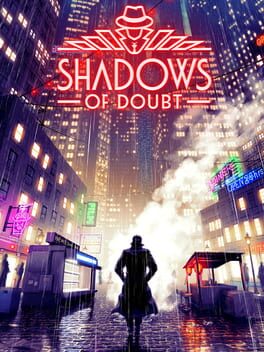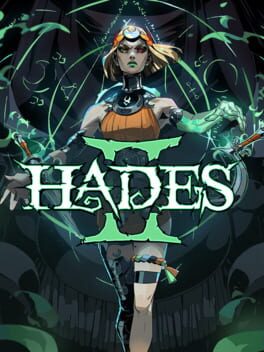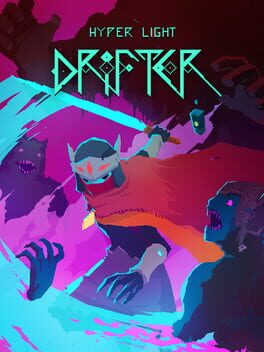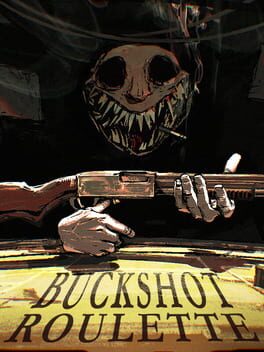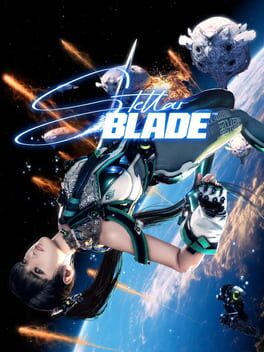rhiannetasm
2022
Marking this replay down as finished for now since I just needed to get the DLC-essential boss fights - Radahn and Mohg - done, and I managed that so I'm happy.
I didn't have that many brand new revelations about this game while I was playing it, to be honest. I thought I would have more to say but I ended up just relearning how good Elden Ring is, and that's about it.
I suppose I summoned more this time around. Actually, in my original playthrough of the game, I wasn't really able to summon at all due to my university wi-fi being dogshit, so it was a feature I got to enjoy for the first time and I like it! It made certain fights, especially duo battles, a lot less frustrating, and I wasn't required nearly as much to dedicate an entire day of my life to learning the ins and outs of a fight in order to beat it, which was a relief. Don't get me wrong, I love the dick-flattening carousel as much as the next girl, but I have a full time job now and nowhere near the same kind of free time to play it that way. I appreciated the extra support. It didn't even make the fights less engaging; it simply shifted the balance a little.
On top of that, I've gotten to play certain parts of the game with my flatmate using the multiplayer, which has been a treat. I'm not someone who plays multiplayer games particularly often, but I can quite easily get into a game like Elden Ring in this way. It's been so fun to basically breeze through the experience and help each other out where we can. We managed to beat Mohg together which was a trip, because that fight is insanely difficult and we ended up winning by killing him before he could activate his second phase. Absolute scenes were had in our little Glasgow flat at 2am on a Monday lol.
Elden Ring is just a really special game. It's a delight to play a game so willing - and eager - to be mean to you. It speaks to an untainted vision that the game expects you to meet it on its terms, rather than bend to yours. That being said, the many methods of approach to any given situation certainly make this a really accessible game, so I hope more people continue to play it into the future. It's a peach!
I didn't have that many brand new revelations about this game while I was playing it, to be honest. I thought I would have more to say but I ended up just relearning how good Elden Ring is, and that's about it.
I suppose I summoned more this time around. Actually, in my original playthrough of the game, I wasn't really able to summon at all due to my university wi-fi being dogshit, so it was a feature I got to enjoy for the first time and I like it! It made certain fights, especially duo battles, a lot less frustrating, and I wasn't required nearly as much to dedicate an entire day of my life to learning the ins and outs of a fight in order to beat it, which was a relief. Don't get me wrong, I love the dick-flattening carousel as much as the next girl, but I have a full time job now and nowhere near the same kind of free time to play it that way. I appreciated the extra support. It didn't even make the fights less engaging; it simply shifted the balance a little.
On top of that, I've gotten to play certain parts of the game with my flatmate using the multiplayer, which has been a treat. I'm not someone who plays multiplayer games particularly often, but I can quite easily get into a game like Elden Ring in this way. It's been so fun to basically breeze through the experience and help each other out where we can. We managed to beat Mohg together which was a trip, because that fight is insanely difficult and we ended up winning by killing him before he could activate his second phase. Absolute scenes were had in our little Glasgow flat at 2am on a Monday lol.
Elden Ring is just a really special game. It's a delight to play a game so willing - and eager - to be mean to you. It speaks to an untainted vision that the game expects you to meet it on its terms, rather than bend to yours. That being said, the many methods of approach to any given situation certainly make this a really accessible game, so I hope more people continue to play it into the future. It's a peach!
(hey, i wrote about this game for my blog. it wasn't really a review so i've written one of those here instead, but i think it's still a good read so check it out if you wanna!)
You know, I think this game has left a bigger impact on me than I'd realised. Going in, I had certain expectations; I knew it was going to depict psychosis, and I knew the story was about the protagonist looking to revive her dead lover, but that was about it. I had no idea the directions it would go, or how the game would develop its concepts.
It's a masterpiece, simply put. An exceptional melding of compelling narrative, arresting visuals, and gameplay that, while light, facilitates the core of the story through the emotions it evokes. Combat is oftentimes gruelling and frustrating and scary, like it realistically should be. It isn't fun in the traditional video-gamey sense, but it is effective.
Senua's Sacrifice is full of these strange but impactful stylistic choices which I adore. It makes for a very unique play experience. There are certain moments, like the first time Senua stares directly into the camera, or the moment I learned how to use the mechanic which slows time during fights because a voice in my head told me to "focus". The game uses live-action video of actors rather than in-game models, presumably due to budgetary issues, but it makes for a game whose look is entirely its own.
I don't think I'm going to play a game like Hellblade again. Even the sequel will likely never capture the specific vibes of its predecessor. That's okay though; this game is just one step in the journey that is the rest of our lives.
You know, I think this game has left a bigger impact on me than I'd realised. Going in, I had certain expectations; I knew it was going to depict psychosis, and I knew the story was about the protagonist looking to revive her dead lover, but that was about it. I had no idea the directions it would go, or how the game would develop its concepts.
It's a masterpiece, simply put. An exceptional melding of compelling narrative, arresting visuals, and gameplay that, while light, facilitates the core of the story through the emotions it evokes. Combat is oftentimes gruelling and frustrating and scary, like it realistically should be. It isn't fun in the traditional video-gamey sense, but it is effective.
Senua's Sacrifice is full of these strange but impactful stylistic choices which I adore. It makes for a very unique play experience. There are certain moments, like the first time Senua stares directly into the camera, or the moment I learned how to use the mechanic which slows time during fights because a voice in my head told me to "focus". The game uses live-action video of actors rather than in-game models, presumably due to budgetary issues, but it makes for a game whose look is entirely its own.
I don't think I'm going to play a game like Hellblade again. Even the sequel will likely never capture the specific vibes of its predecessor. That's okay though; this game is just one step in the journey that is the rest of our lives.
2024
Indika is awesome - a certified weirdo game - and so, so interesting to think about. I want more people to play this game because there's so much room for conversation with this game. I'd love to write a longer review about it for my blog so I might do that, but for now I'm gonna let it gestate. If you're open to art about religion and personhood, or just weird experiences that take advantage of games as a medium, this one's definitely worth a look.
2023
This game is really cool, but the mechanics are very obtuse and don't lend themselves well to a controller setup. I think if I want to play this properly I'll need to use a keyboard and mouse, but I think I'll just wait until it's out of early access. I adore the immersive sim stuff though, and I genuinely had so much fun playing it, despite all the jank. I'm definitely coming back to this one.
2024
Hades 2 absolutely rips, but that isn't surprising in the slightest. It's a really exceptional game, and a surprisingly fresh follow-up to what is one of my favourite games ever.
I think the shift in stakes is what's made this one feel so unique. Rather than being a pretty insular tale of Zagreus escaping hell in search of his mother, the scope of the mission has broadened for his sister Melinoë, tasked with defeating Chronos, the Titan of Time, and insodoing, save her family from imprisonment. It's unclear what the fate of the House of Hades is exactly at this point, but I'm confident in whatever Supergiant decide to cook up here.
Regardless, the tone switch to one of saviour rather than rebel is tantalising, and the ways in which that burden weighs upon our new protagonist is making for some delicious character drama. The denizens of our new hub area, the Crossroads, are all fun to interact with, and their motivations are just as compelling as what has come before. I think the interactions are a little different this time, with a fresh-out-of-hiding Mel much more likely to come across fresh faces than Zag who, having lived in the Underworld his whole life, knows pretty much everyone already. I'm not sure if I'm as fond of the new approach, given that I think Supergiant excels most in writing relationships and their backstories as mysteries to be solved through repeated conversation, but the writing is still so bouncy and fresh that I can't say the difference is too noticeable to me.
The game plays pretty much the same with some differences to the way certain mechanics operate, but for the most part it's been quite easy to slip back into the signature Hades feel. I like the changes to how boons work, with Selene the Moon Titan working as the dedicated God Call - now called Hexes - and being able to customise that Hex accordingly. I like the new boon additions too; the inclusion of new gods like Hera, Hestia, Hephaestus and Apollo is neat and it's cool to see Supergiant's gorgeous artistic interpretation of them.
What I'm less sure about is the new resource gathering system. On the one hand, I understand it; the original Hades only really had a small handful of options to use as currency for upgrades, so I get the impulse to diversify that aspect of the game. That being said, it has now created a brand new frustration in that it's entirely possible to be missing a really specific material you can only get in a late game area, and depending on how unlucky you get with your build in any given run, you can spend ages throwing yourself at the same situation again and again, to get to an area where the thing you're looking for doesn't even show up. I get that this design is supposed to incentivise repeated runs, but I think the promise of possible friendly encounters, fresh dialogue in boss fights, and just the base level fun of playing the game, is more than enough incentive, at least for me. As it stands, it feels like an unnecessary roadblock.
Ultimately though, the game is still in early access so much can change. Supergiant have already said that they're likely to keep tweaking the game balance all the way up to release, so until that day, we'll have to withhold judgement I think. As it stands, Hades 2 is awesome, and between the success of this and Baldur's Gate 3, the future of self-published games is looking bright. I hope the game only improves with Time.
I think the shift in stakes is what's made this one feel so unique. Rather than being a pretty insular tale of Zagreus escaping hell in search of his mother, the scope of the mission has broadened for his sister Melinoë, tasked with defeating Chronos, the Titan of Time, and insodoing, save her family from imprisonment. It's unclear what the fate of the House of Hades is exactly at this point, but I'm confident in whatever Supergiant decide to cook up here.
Regardless, the tone switch to one of saviour rather than rebel is tantalising, and the ways in which that burden weighs upon our new protagonist is making for some delicious character drama. The denizens of our new hub area, the Crossroads, are all fun to interact with, and their motivations are just as compelling as what has come before. I think the interactions are a little different this time, with a fresh-out-of-hiding Mel much more likely to come across fresh faces than Zag who, having lived in the Underworld his whole life, knows pretty much everyone already. I'm not sure if I'm as fond of the new approach, given that I think Supergiant excels most in writing relationships and their backstories as mysteries to be solved through repeated conversation, but the writing is still so bouncy and fresh that I can't say the difference is too noticeable to me.
The game plays pretty much the same with some differences to the way certain mechanics operate, but for the most part it's been quite easy to slip back into the signature Hades feel. I like the changes to how boons work, with Selene the Moon Titan working as the dedicated God Call - now called Hexes - and being able to customise that Hex accordingly. I like the new boon additions too; the inclusion of new gods like Hera, Hestia, Hephaestus and Apollo is neat and it's cool to see Supergiant's gorgeous artistic interpretation of them.
What I'm less sure about is the new resource gathering system. On the one hand, I understand it; the original Hades only really had a small handful of options to use as currency for upgrades, so I get the impulse to diversify that aspect of the game. That being said, it has now created a brand new frustration in that it's entirely possible to be missing a really specific material you can only get in a late game area, and depending on how unlucky you get with your build in any given run, you can spend ages throwing yourself at the same situation again and again, to get to an area where the thing you're looking for doesn't even show up. I get that this design is supposed to incentivise repeated runs, but I think the promise of possible friendly encounters, fresh dialogue in boss fights, and just the base level fun of playing the game, is more than enough incentive, at least for me. As it stands, it feels like an unnecessary roadblock.
Ultimately though, the game is still in early access so much can change. Supergiant have already said that they're likely to keep tweaking the game balance all the way up to release, so until that day, we'll have to withhold judgement I think. As it stands, Hades 2 is awesome, and between the success of this and Baldur's Gate 3, the future of self-published games is looking bright. I hope the game only improves with Time.
2016
An hour in, and this game is so neat. I adore the vibes of this thing. The opening cinematic is electric and pulled me right in, and the world itself is both gorgeous and mysterious, a lovely combo. My main criticism at the moment is that the combat is pretty limited and doesn't feel great, but it's possible that gets rectified the further in I go. I'm excited to try out more!
2023
You know, after a week of being trapped in the vice grip of Hades 2, it was nice to hop into a super short experience like Buckshot Roulette.
This game is finished in around 20 minutes if you're absolutely cracked at being really lucky and stumbling into the right plays like myself, but the core mechanics are so fun that it's easy to hop in for quick sessions. It's actually refreshing to play something so stripped back. Everything the game is exists within any given play session, and that's it. When you lose, the whole thing resets. It sounds a little silly because it's not like Buckshot Roulette invented that kind of design, but I haven't played something like it in a while, so I appreciate it.
This game is finished in around 20 minutes if you're absolutely cracked at being really lucky and stumbling into the right plays like myself, but the core mechanics are so fun that it's easy to hop in for quick sessions. It's actually refreshing to play something so stripped back. Everything the game is exists within any given play session, and that's it. When you lose, the whole thing resets. It sounds a little silly because it's not like Buckshot Roulette invented that kind of design, but I haven't played something like it in a while, so I appreciate it.
2024
I've actually been pleasantly surprised by Stellar Blade. Culture war shite aside, I find the explicit difference between the depictions of men and women in this game to be pretty lame. It's bizarre, since the world itself seems entirely unconcerned with gender, and there's never a moment where someone objectifies the protagonist or other women, at least from what I've played. In a game where sexuality is barely a factor at all, you're left to wonder why it's present at all, for any reason other than the assumed benefit of the ogling player.
To be honest, it's not a particularly significant feature in the game overall, so the fact that conversation around the game always comes back to that is a shame, though the developers do bring it on themselves when it is what appears on the box when you buy in.
What I find to be a more interesting part of Stellar Blade is the clear influence by NieR Automata, and more specifically the way that fact didn't bother me as much as I'd expected. It can feel a little hacky at first to see right away the ways in which this game mirrors its major influence, but as I continued to play, a lot of the creative decisions for this game felt surprisingly authentic. In every side quest, every collectible, every costume is a glimmer of humanity. A lot of blockbuster games these days are so bloated, and can often feel arbitrarily lengthened by studio mandate. Stellar Blade trims a lot of the fat, so what's left straightforwardly feels like an idea that somebody had on the dev team which was then built for the game.
It would be quite easy to call Stellar Blade shameless given the discourse surrounding it, and it's sort of true, but as a result it feels more human. This game is a series of Shift Up's personal indulgences, made manifest with a triple-AAA budget.
It's oftentimes a little tone-deaf, but it's also full of strangeness, just like a person. It knows what it is, wears its influences on its sleeve, and doesn't waste time feigning otherwise. I don't know if I'll finish it, but I enjoyed my time!
To be honest, it's not a particularly significant feature in the game overall, so the fact that conversation around the game always comes back to that is a shame, though the developers do bring it on themselves when it is what appears on the box when you buy in.
What I find to be a more interesting part of Stellar Blade is the clear influence by NieR Automata, and more specifically the way that fact didn't bother me as much as I'd expected. It can feel a little hacky at first to see right away the ways in which this game mirrors its major influence, but as I continued to play, a lot of the creative decisions for this game felt surprisingly authentic. In every side quest, every collectible, every costume is a glimmer of humanity. A lot of blockbuster games these days are so bloated, and can often feel arbitrarily lengthened by studio mandate. Stellar Blade trims a lot of the fat, so what's left straightforwardly feels like an idea that somebody had on the dev team which was then built for the game.
It would be quite easy to call Stellar Blade shameless given the discourse surrounding it, and it's sort of true, but as a result it feels more human. This game is a series of Shift Up's personal indulgences, made manifest with a triple-AAA budget.
It's oftentimes a little tone-deaf, but it's also full of strangeness, just like a person. It knows what it is, wears its influences on its sleeve, and doesn't waste time feigning otherwise. I don't know if I'll finish it, but I enjoyed my time!



